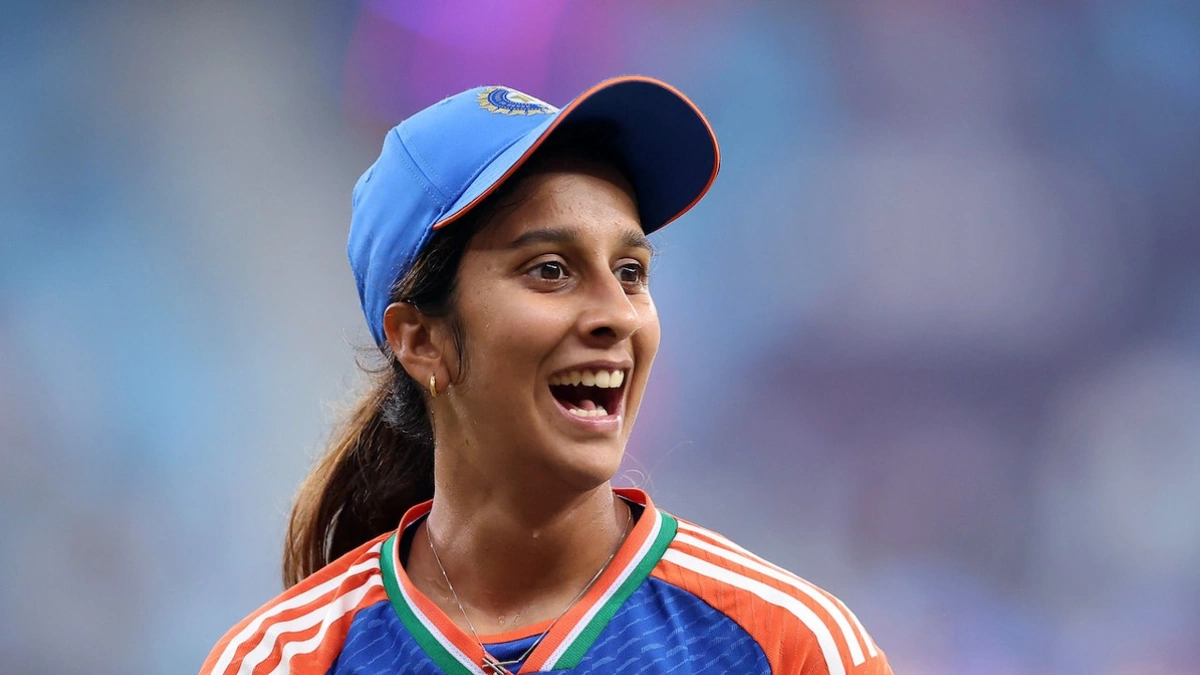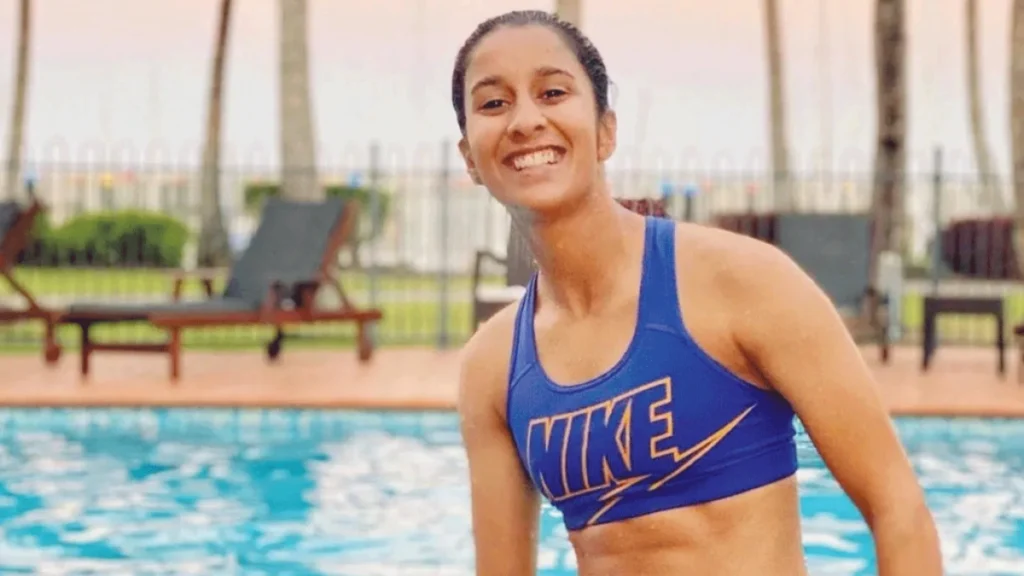Jemimah Rodrigues. The name itself conjures images of audacious strokeplay, a fearless approach, and a smile that can light up any stadium. But behind the on-field swagger lies a battle that many athletes, including our very own Jemimah, face: anxiety. Recently, after a match-winning performance, Jemimah opened up about her struggles with anxiety at the start of the tournament. And honestly? It’s a conversation we desperately need to have.
Here’s the thing: we often see athletes as these superhuman figures, immune to the pressures and anxieties that plague us mere mortals. But they’re not. They’re human. Jemimah’s vulnerability isn’t a sign of weakness; it’s a testament to her strength and self-awareness. And her willingness to speak about it helps break down the stigma surrounding mental health in sports, especially in a cricket-obsessed nation like India. What fascinates me is how much her story resonates with everyday struggles. Let’s dive deeper, shall we?
Why Jemimah’s Anxiety Revelation Matters – More Than Just Cricket

So, why is Jemimah’s revelation such a big deal? Beyond the boundaries and wickets, it’s about normalizing the conversation around mental health in sports . For years, athletes were expected to be stoic, to brush off pressure, and to perform regardless of their mental state. This culture of silence can be incredibly damaging. Jemimah’s openness challenges this notion. A common mistake I see is thinking anxiety is just a personal problem. It has performance implications!
Think about it: countless young cricketers in India idolize Jemimah. They see her success, her confidence, and her match-winning ability. But now, they also see her vulnerability. They realize that even their heroes face challenges, and that it’s okay to ask for help. This can be incredibly empowering, especially for those who might be struggling with similar issues but are afraid to speak up. As per the World Health Organization , mental health is a state of well-being in which an individual realizes his or her own abilities, can cope with the normal stresses of life, can work productively and is able to make a contribution to his or her community.
And it’s not just about cricket. Jemimah’s story has implications for all fields, for all individuals facing pressure and expectations. It reminds us that mental health is just as important as physical health, and that seeking help is a sign of strength, not weakness. This is extremely vital for Indian women’s cricket . But let’s get practical.
How Jemimah’s Experience Can Help Young Athletes Manage Pressure
Alright, so Jemimah opened up about her anxiety. But what can young athletes – and frankly, anyone facing pressure – actually do with this information? Let’s break it down. The “How” angle here is crucial: actionable steps.
Firstly, acknowledge your feelings. It’s okay to feel anxious, nervous, or overwhelmed. Don’t try to suppress these emotions; instead, acknowledge them and understand that they’re a normal part of the experience. Jemimah’s willingness to admit her anxiety is the first step. Coping mechanisms can be extremely personalized, finding one that works for you is key.
Secondly, develop coping mechanisms. This could involve anything from deep breathing exercises and meditation to talking to a trusted friend or family member. Find what works for you and make it a part of your routine. Sometimes, just stepping away from the situation and taking a few deep breaths can make a world of difference. And trust me, I’ve been there – that moment of panic before a big presentation? Deep breaths are my lifeline.
Thirdly, seek professional help if needed. There’s no shame in talking to a therapist or counselor. They can provide you with tools and strategies to manage your anxiety and improve your mental well-being. It’s important to remember that seeking support is a sign of strength, not weakness. A support system is crucial when dealing with performance anxiety . According to sports psychologists, acknowledging the role of support groups aids in boosting the confidence of the athletes.
Fourthly, focus on the process, not the outcome. This is a tough one, especially in a results-oriented environment. But try to shift your focus from winning or losing to the process of preparing and performing to the best of your ability. Control what you can control, and let go of the rest. Don’t get bogged down by negative thoughts that can hinder your performance. What matters is the effort and dedication you are investing.
The Emotional Toll | Understanding the Pressure on Female Cricketers in India
Let’s be honest, being a female cricketer in India comes with its own unique set of challenges. The pressure to perform, to prove oneself, to overcome societal expectations – it’s immense. And it can take a significant emotional toll.
The scrutiny is relentless. Every move is analyzed, every performance is dissected. And the expectations are sky-high. This can create a breeding ground for anxiety and self-doubt. This is where Jemimah Rodrigues’ journey becomes so impactful. It gives hope to budding female cricketers.
But here’s the thing: these women are not just cricketers; they’re role models. They’re inspiring a generation of young girls to dream big and to pursue their passions, regardless of societal barriers. They deserve our support, our understanding, and our empathy. They don’t just need cheering; they need a safe space to express the challenges they face. And the challenges are real.
Building a Supportive Environment | What Can We Do?
So, how can we create a more supportive environment for athletes, especially female cricketers in India? It starts with empathy. It starts with recognizing that they’re human beings, not just machines designed to win trophies. It means providing them with access to mental health resources and creating a culture where it’s okay to ask for help. It means changing the narrative around success and failure.
We need to celebrate effort, dedication, and resilience, not just results. We need to focus on the person, not just the performance. And we need to create a space where athletes feel safe to express their emotions, their anxieties, and their vulnerabilities. The key to creating an environment of support is through open and honest communication. This goes for team members, coaches, and fans alike. It’s a collective effort. And it starts with us.
According to an article on Wikipedia , Jemimah is an aggressive right-hand batter. As a fan, you have to know she is more than her performance on field. What fascinates me is how relatable her struggles are despite her success.
From Anxiety to Strength | Jemimah’s Example
Ultimately, Jemimah’s story is one of resilience. It’s about acknowledging your vulnerabilities, seeking help, and coming back stronger. It’s about transforming anxiety into strength. And it’s a lesson that we can all learn from. She is extremely talented, has great potential to perform well at international level.
It’s a reminder that success is not about being perfect; it’s about being human. It’s about embracing our flaws, learning from our mistakes, and never giving up on ourselves. And it’s about recognizing that we’re all in this together. Jemimah’s courage to speak out is helping to break down barriers and create a more supportive environment for all. It’s okay to not be okay. And it’s okay to ask for help. Let’s support her journey and each other. What do you think? I think we need to support young athletes .
By the way, did you check out India Rethinks Strategy ? Or maybe you’d prefer to know about Healy Different Today .
FAQ Section
Frequently Asked Questions
How common is anxiety among athletes?
Anxiety is surprisingly common among athletes, stemming from performance pressure, injuries, and intense competition.
What are some signs that an athlete is struggling with anxiety?
Signs can include changes in performance, withdrawal from social activities, increased irritability, and difficulty sleeping.
What kind of support can be provided to athletes dealing with anxiety?
Support can include access to sports psychologists, counseling services, stress management techniques, and a supportive team environment.
How can coaches help athletes manage their anxiety?
Coaches can promote open communication, focus on effort over outcome, and encourage athletes to seek professional help when needed.
Is it okay for athletes to talk about their mental health challenges?
Yes! Openly discussing mental health challenges helps normalize the conversation and encourages others to seek help.

I’m Vishal Ojha, a passionate blogger, content writer, and web designer with over four years of experience. I have a deep love for sports, especially cricket, and enjoy sharing the latest updates, insights, and analyses from the world of athletics. Every article I publish is carefully researched and fact-checked, ensuring readers get accurate and engaging sports content they can trust.



